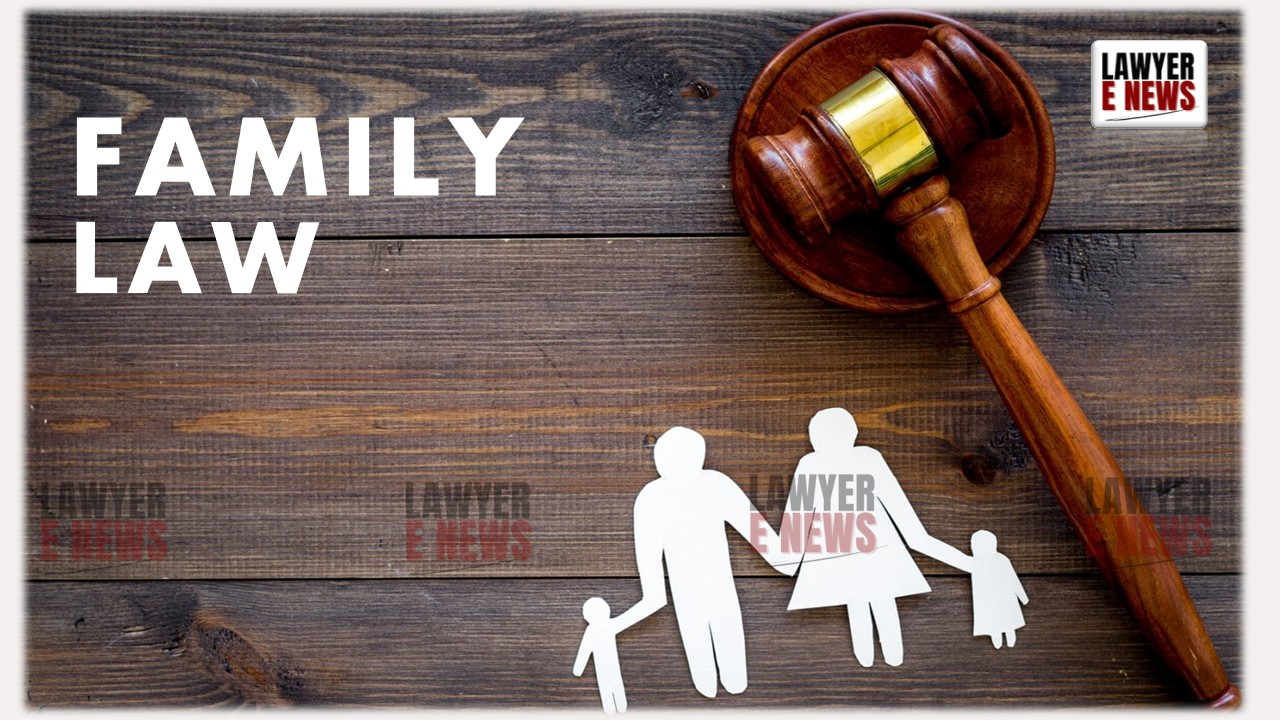-
by Admin
16 February 2026 1:47 PM



Lack of Uniformity in Limitation Periods Prejudices Litigants – Legislative Intervention Needed - In a significant ruling addressing the conflict in limitation periods under matrimonial laws, the Gauhati High Court condoned a 21-day delay in filing an appeal against a Family Court judgment, emphasizing that “a pragmatic and justice-oriented approach” is essential in matrimonial disputes.
A division bench comprising Justice Sanjay Kumar Medhi and Justice Kakhato Sema allowed Interlocutory Application (Civil) No. 2463 of 2024, holding that the delay in filing the appeal was not inordinate and that the applicant had provided a reasonable explanation for the delay.
The Court further noted a glaring inconsistency between the Family Courts Act, 1984, which prescribes a 30-day limitation period, and the Hindu Marriage Act, 1955, which, post-amendment, allows 90 days. Calling for legislative intervention, the Court observed that this discrepancy leads to prejudice against litigants and requires urgent harmonization.
“A 21-Day Delay in Matrimonial Appeals Cannot Be Considered Inordinate”
The case arose from an application under Section 5 of the Limitation Act, 1963, seeking condonation of a 21-day delay in filing an appeal against a judgment of the Principal Judge, Family Court-2, Kamrup (Metro) in F.C. (Civil) No. 427/2011, concerning the annulment of marriage.
The applicant argued that, though the impugned judgment was delivered on June 12, 2024, and the certified copy was applied for the next day, personal collection was required, which was delayed due to the applicant residing in Meghalaya. The certified copy was collected on July 18, 2024, resulting in the delay in filing the appeal.
The respondent opposed the application, arguing that the delay was due to the applicant’s negligence in depositing the necessary court fees for obtaining the certified copy. The respondent contended that the explanation lacked bona fides and amounted to suppression of material facts.
However, the High Court, relying on Collector, Land Acquisition, Anantnag v. Katiji (1987) 2 SCC 107, observed that "the law of limitation should not be applied so rigidly as to defeat substantial justice." The Court held that a short delay of 21 days did not warrant dismissal of the appeal on technical grounds.
“Conflicting Limitation Periods for Matrimonial Appeals Must Be Resolved”
Beyond the issue of condonation of delay, the High Court highlighted a serious inconsistency in the limitation periods prescribed under different statutes governing matrimonial appeals.
It noted that under Section 19(3) of the Family Courts Act, 1984, an appeal must be filed within 30 days, whereas, under the Hindu Marriage Act, 1955 (HMA), following the 2003 amendment, the limitation period was extended to 90 days.
“A litigant appealing from a judgment of a Family Court has only 30 days, whereas a litigant appealing under the Hindu Marriage Act enjoys 90 days. This inconsistency causes unwarranted hardship and needs rectification by legislative intervention,” the Court observed.
Citing the Supreme Court’s judgment in Savitri Pandey v. Prem Chandra Pandey (AIR 2002 SC 591), the High Court reiterated that the earlier 30-day limitation period was insufficient for litigants from remote areas and was amended to 90 days in HMA to ensure fairness. However, a similar amendment was not made to the Family Courts Act, creating an anomalous situation.
The Bombay High Court’s Full Bench in Shivram Dodanna Shetty v. Sharmila Shivram Shetty (2017 (1) Mh.LJ) had already addressed this issue and held that the 90-day limitation period should apply uniformly to all matrimonial appeals, irrespective of whether they arise under HMA or the Family Courts Act.
The Gujarat High Court, in Chaudhary Chetnaben Dilipbhai v. Chaduhary Dilipbhai Lavjibhai (2023 (1) Civil Court Cases 562), had taken a similar view, emphasizing that such disparities violate Article 14 (Right to Equality) of the Constitution.
The Gauhati High Court aligned itself with this reasoning, stating: “A litigant should not be prejudiced merely because their case is heard by a Family Court instead of a District Court. A uniform limitation period for matrimonial appeals is necessary to ensure fairness.”
“Courts Must Prioritize Substantial Justice Over Technicalities”
Emphasizing that courts must adopt a liberal, pragmatic approach in matrimonial cases, the Court quoted Esha Bhattacharjee v. Managing Committee of Raghunathpur Nafar Academy (2013) 12 SCC 649, wherein the Supreme Court held: “No presumption can be attached to deliberate causation of delay, and courts must weigh the scale of justice in favor of substantial justice rather than technicalities.”
The Supreme Court’s decision in Sridevi Datla v. Union of India (2021) 5 SCC 321 was also relied upon, which distinguished between inordinate delays and short delays, holding that “minor delays should not defeat the right to appeal”.
The High Court thus held that the delay was neither deliberate nor inordinate, and condoned the 21-day delay, directing that the appeal be registered and listed for admission.
“Legislative Reform Needed – Uniform Limitation for Matrimonial Appeals”
Recognizing the need for legislative reform, the High Court directed that a copy of the judgment be sent to the Ministry of Law & Justice, urging the harmonization of limitation periods under the Family Courts Act and the Hindu Marriage Act.
The Court concluded: “The disparity in limitation periods under the Family Courts Act and the Hindu Marriage Act creates avoidable hardships. This Court urges the Legislature to take necessary steps to ensure a uniform period of limitation for all matrimonial appeals.”
Conclusion: A Significant Step Towards Fairness in Matrimonial Litigation
With this ruling, the Gauhati High Court has not only ensured that a short delay does not defeat the right to appeal, but has also raised a critical issue of inconsistency in matrimonial laws, potentially paving the way for legislative reforms that could benefit countless litigants across the country.
Date of Decision: 30 January 2025
